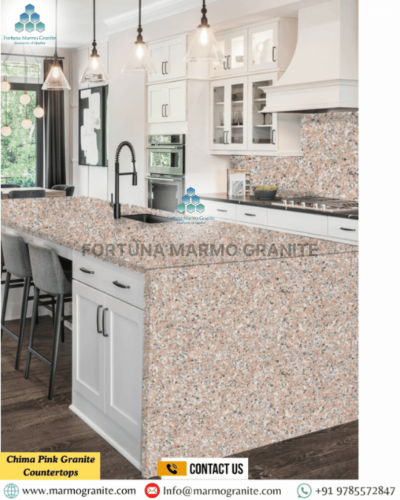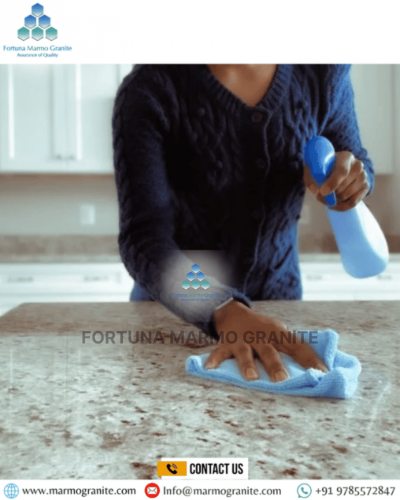Granite Care Mistakes: What NOT to Use When Cleaning Your Countertops
Granite countertops are beautiful and durable. but they need proper care to maintain their natural shine. Many people accidentally damage them by using. acidic liquids like vinegar or lemon juice. harsh cleaners such as bleach or ammonia, or scrubbing too hard with rough pads. These actions weaken the protective seal and cause dull spots, stains. and surface damage.
Moreover, Granite is tough, yet it still requires gentle care. You don't need fancy products—just use mild soap, warm water, and a soft cloth. Avoid harsh chemicals. Small mistakes repeated over time can make your countertop look worn. In addition, but careful cleaning preserves its glossy, strong appearance for years.
The Allure of Granite: More Than Just a Countertop
Granite's popularity is no accident. This igneous rock, formed deep within the Earth over millions of years. offers a uniqueness that man-made materials cannot replicate. Each slab showcases a one-of-a-kind mosaic of minerals like feldspar, quartz. and mica, which sparkle and shift in the light. Its durability, heat resistance, and scratch resistance make. it a practical choice for busy households.
Moreover, But here's a key detail that many overlook: granite is a natural stone with a porous structure. Tiny microscopic pores can absorb liquids. To prevent stains and bacterial growth, you must fill and seal these pores. Applying a professional-grade sealant creates. an invisible shield that preserves the stone's beauty. Cleaning granite, therefore, requires more than removing dirt. it demands care to maintain this essential protective barrier.
Mistake #1: The Harsh Chemical Assault
Walk down any cleaning aisle, and you'll be overwhelmed with options. Sprays for glass, wipes for wood, and scrubs for porcelain. It's tempting to use a single "all-purpose" cleaner for everything, including your granite. This is a critical error. Many common household cleaners contain powerful chemicals that are a direct enemy of your countertops.
- Ammonia-based cleaners (like many glass cleaners): Moreover, Ammonia is a powerful degreaser, but it's also highly alkaline. Over time, it will dissolve the sealant on your granite, leaving the stone unprotected and vulnerable to stains and etching. The surface will start to look hazy and dull, a direct result of the sealant's degradation.
- Bleach and other chlorine-based products: In addition, While great for disinfection, bleach is far too harsh for natural stone. It can discolor the granite and, like ammonia, will break down the sealant. Using it regularly is a surefire way to shorten the lifespan of your countertop's protective layer.
- Moreover, from a sink, abrasive cleaners contain fine particles that are designed to scour surfaces. They will scratch the polished, mirror-like finish of your granite, creating micro-scratches that trap dirt and make the surface look dull and worn.
- In addition, The solution is simple: avoid these chemicals entirely. Instead, invest in a pH-neutral cleaner specifically formulated for natural stone. These products are designed to clean without damaging the sealant, preserving the stone's integrity and shine.
Mistake #2: The Vinegar and Lemon Juice Fallacy
This is perhaps the most common mistake made by eco-conscious cleaners. Vinegar and lemon juice are often lauded as "natural" and effective cleaning agents for almost everything in the house. And for many surfaces, they are. But for granite, they are a disaster waiting to happen.
The problem lies in their high acidity. Vinegar has a pH of around 2.4, and lemon juice is similar. These acids are incredibly effective at dissolving mineral deposits. Unfortunately, granite is composed of minerals. While a single, quick wipe with a diluted solution might not cause immediate catastrophic damage, consistent use will lead to etching.
Etching is more than a minor cosmetic issue—it's a chemical reaction that physically alters your granite's surface. It creates dull, rough patches that often resemble water stains or faded fingerprints. Acidic substances like vinegar, lemon juice, or harsh cleaners trigger this damage by breaking down the sealant and penetrating the stone. Dark, polished granite shows etching most clearly, as the contrast between the glossy finish and damaged areas stands out. Unfortunately, you cannot simply wipe away these blemishes. In many cases, you must hire a professional to hone and re-polish the surface to restore its original shine, which can be costly and inconvenient.
Mistake #3: Embracing Abrasive Tools
Just as important as the cleaning solution is the tool you use to apply it. The wrong choice can physically mar the surface of your beautiful countertop.
Steel wool and scouring pads: Never use these. The metal fibers in steel wool scratch the polished surface, and scouring pads create fine scratches that dull the granite's shine. Once the finish is compromised, the stone becomes more prone to stains and damage.
Stiff-bristled brushes: Avoid these as well. Although they seem useful for stubborn spills, stiff brushes are too harsh and can scratch delicate, polished surfaces.
Mistake #4: Ignoring Spills and Stains
Granite, when properly sealed, resists spills very well, but "resistant" does not mean "impervious." A good sealant adds protection, yet spills left for even a few hours can penetrate both the sealant and the stone. Certain substances pose higher risks: wine and fruit juices, which are acidic and colorful, can etch or stain the surface; oils and grease can seep into the pores, leaving dark spots; and coffee or tea can stain if their pigments remain on the stone too long.
The Right Way: A Simple Guide to Granite Care
- For daily cleaning, simply use warm water with a few drops of mild dish. soap and wipe the surface with a soft microfiber cloth.
- For heavier grime, choose a cleaner specifically labeled for natural stone or granite. These pH-neutral cleaners effectively. remove dirt without damaging the stone or its protective sealant.
- Tool of Choice: Always use a soft microfiber cloth or a non-abrasive sponge. Avoid steel wool, scouring pads, and harsh brushes.
- Immediate Cleanup: Wipe up all spills as they happen. Don't let them sit.
- Sealing: Remember that sealing is the key to protecting your granite. Depending on the type of granite and the sealant used, you should re-seal your countertops every 1-3 years. A professional can help you determine the best schedule.
Conclusion
Indian Granite Supplier Granite Care Mistakes: Maintaining granite countertops requires more than regular cleaning—you also need to avoid harmful practices. Many homeowners unknowingly damage their surfaces by using harsh substances like vinegar, lemon juice, ammonia, bleach, or generic household cleaners that aren't pH-balanced. These chemicals can strip the protective sealant, dull the stone's natural shine, cause discoloration, and even create microscopic damage that reduces durability over time. Scrubbing with abrasive pads or harsh tools can also scratch the surface and trap grime and bacteria. Instead, clean granite with specially formulated stone cleaners and soft, non-abrasive cloths. This approach preserves the stone's beauty while supporting its long-term performance and hygiene.



